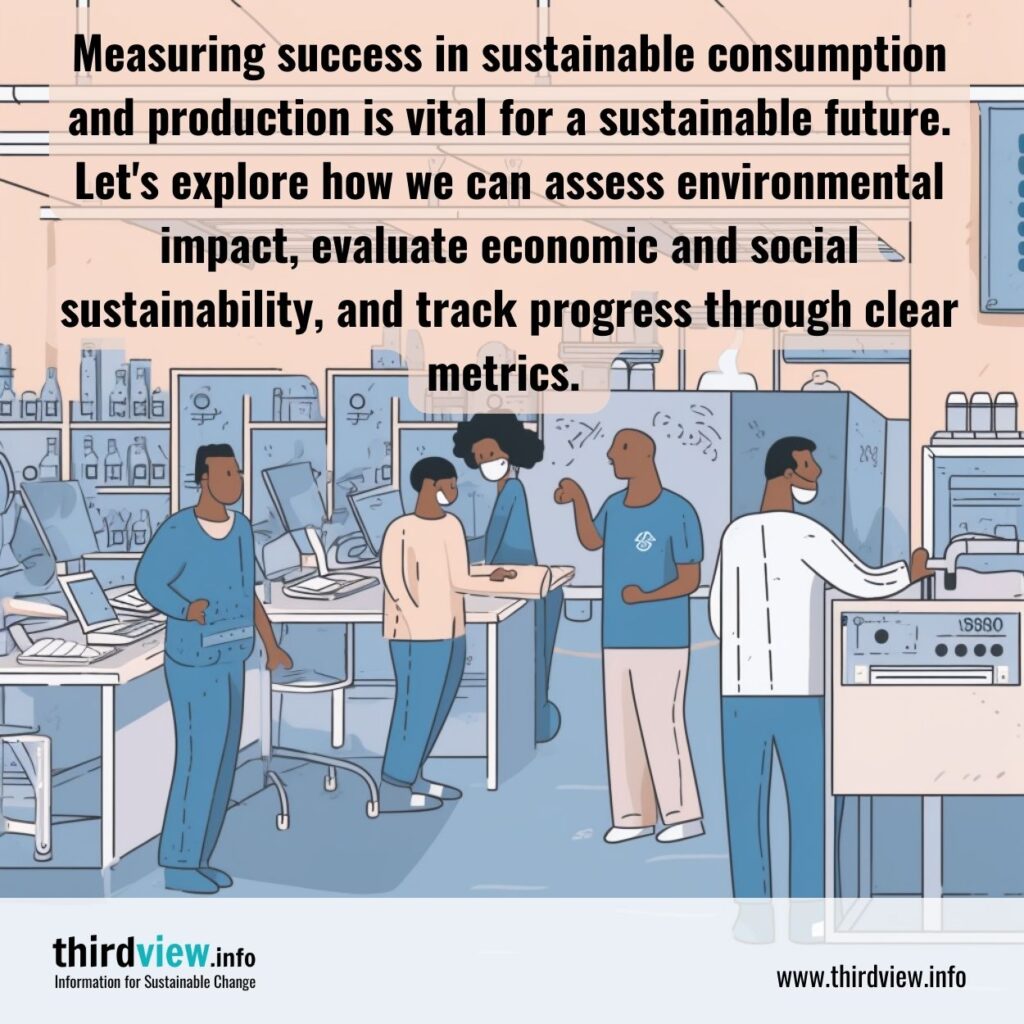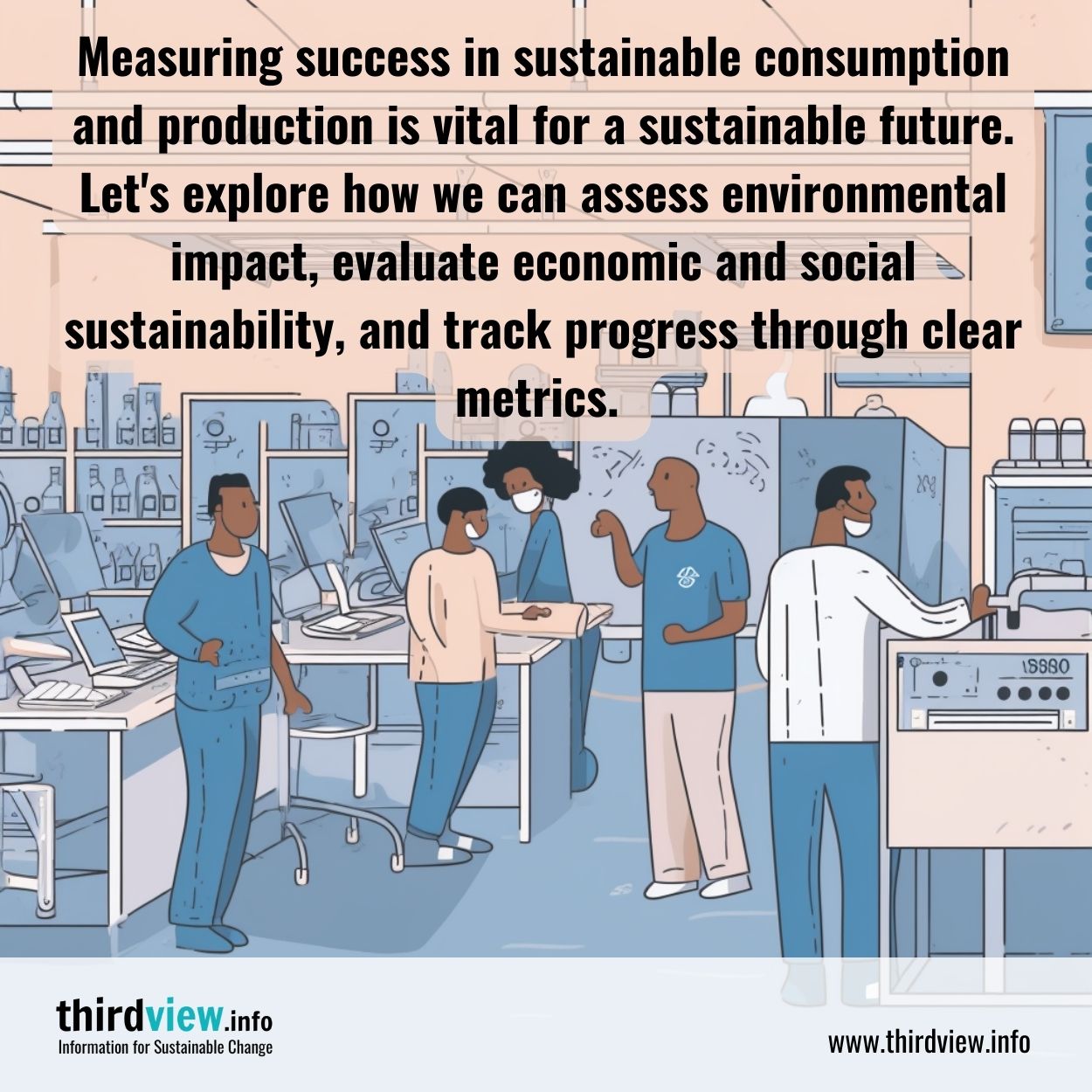In recent years, sustainable consumption and production patterns have become increasingly important. It’s not just about being environmentally friendly, it’s about sustainability as a whole. We need to make sure that our natural resources are not depleted and that we can maintain our lifestyle for future generations. But how do we measure the success of sustainable consumption and production patterns? In this blog post, we will discuss the various ways in which we can measure it and why this is important.
Assessing the environmental impact of sustainable consumption and production
The first step in measuring success is to assess the environmental impact of consumption and production patterns. Factors to consider include resource depletion, energy use, greenhouse gas emissions, and waste generation. Measuring these impacts provides insight into the effectiveness of sustainability initiatives and helps to guide decision-making processes. One common tool used to assess environmental impact is life cycle assessment (LCA), which evaluates a product or service from production to disposal. LCA helps identify areas for improvement to reduce environmental impact.
Evaluating economic sustainability
The second approach to measuring success in sustainable consumption and production is through economic sustainability. Economic sustainability involves creating value and wealth while minimizing harm to the environment. To evaluate economic sustainability, key performance indicators (KPIs) such as sales, profits, and market share are measured along with environmental metrics like energy use, emissions, and waste reduction. Sustainable companies that show strong financial performance while promoting sustainability are seen as successful.
Social sustainability
The third approach to measuring the success of sustainable consumption and production is through social sustainability. Social sustainability encompasses fair labour practices, community engagement, and social responsibility. Measuring social sustainability involves evaluating a company’s treatment of its employees, working conditions, safety practices, and supply chain labour practices. Additionally, a company’s commitment to corporate social responsibility through community outreach, charitable donations, and philanthropy is evaluated. A socially sustainable company must strike a balance between economic growth, environmental protection, and social development.
Policy sustainability
Policy sustainability involves evaluating public policies to ensure they promote sustainable consumption and production. The success of policy sustainability is measured by the effectiveness of incentives, regulations, and enforcement. It is important that policy frameworks promote sustainable consumption and production while considering the costs and benefits. Policies also play a critical role in providing information to businesses and consumers, enabling informed decision-making processes.
Metrics and tracking Progress
To track progress in sustainable consumption and production, clear metrics are required. Sustainable development goals (SDGs) provide a framework for tracking progress in sustainability initiatives. The SDGs set targets and indicators to track progress towards promoting economic growth, environmental protection, and social development. By tracking progress, stakeholders can evaluate the success of sustainability initiatives and make informed decisions. Metrics also provide a basis for comparison between businesses and countries and help to identify areas for improvement.
Promoting sustainable consumption and production is a crucial aspect of sustainable development; measuring success in this area allows for informed decisions and better sustainability outcomes. Metrics and measurements are critical to tracking progress in sustainable development and serve as a basis for comparison and identifying areas for improvement. Success in sustainable consumption and production involves a combination of economic, environmental, social, and policy sustainability. Establishing effective policies, improving efficiency through LCA, promoting green business practices, and enhancing social responsibility can lead to success in sustainable consumption and production. With the right metrics, policies, and mindset to promote sustainable consumption and production, we can ensure a more sustainable and equitable future.


